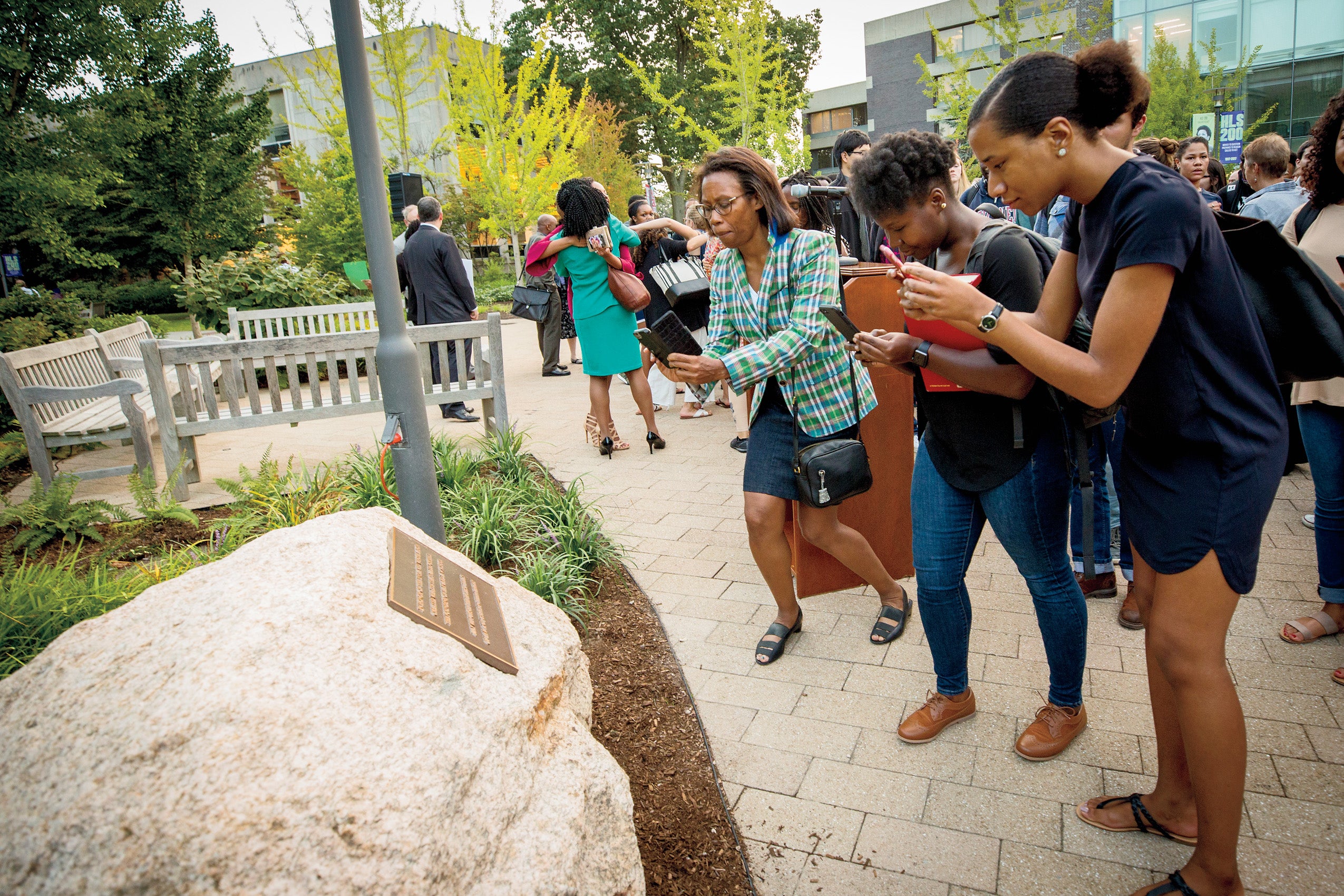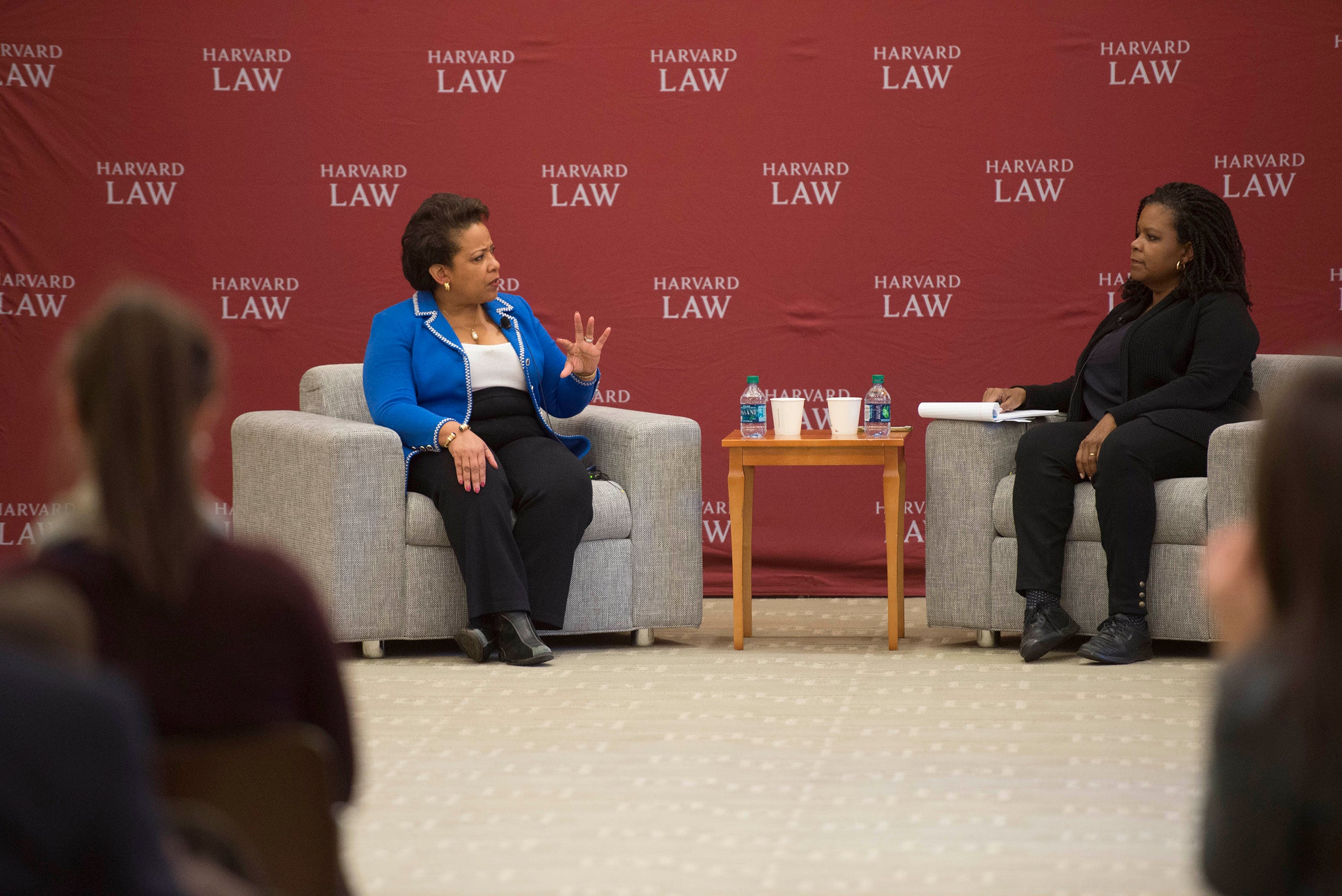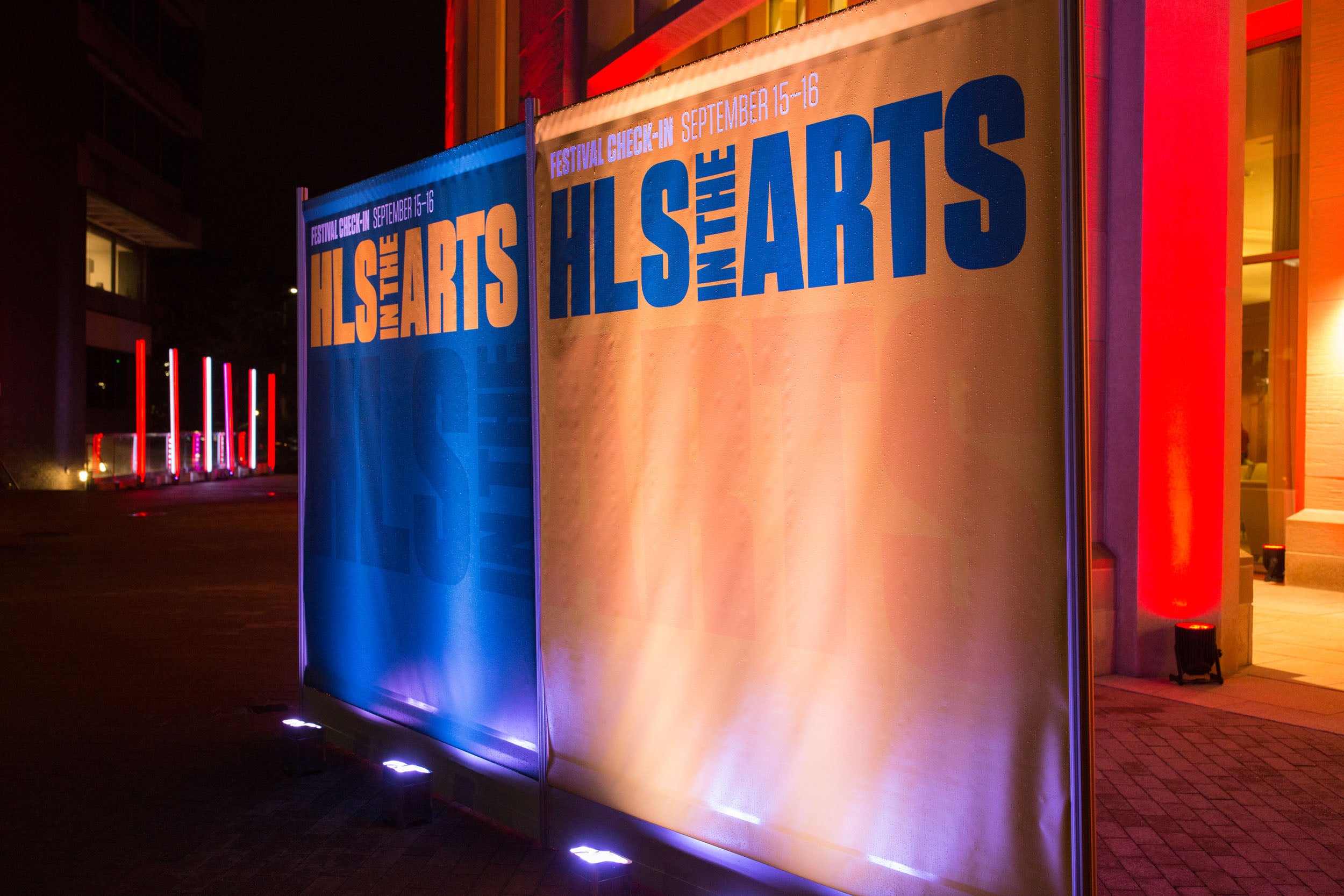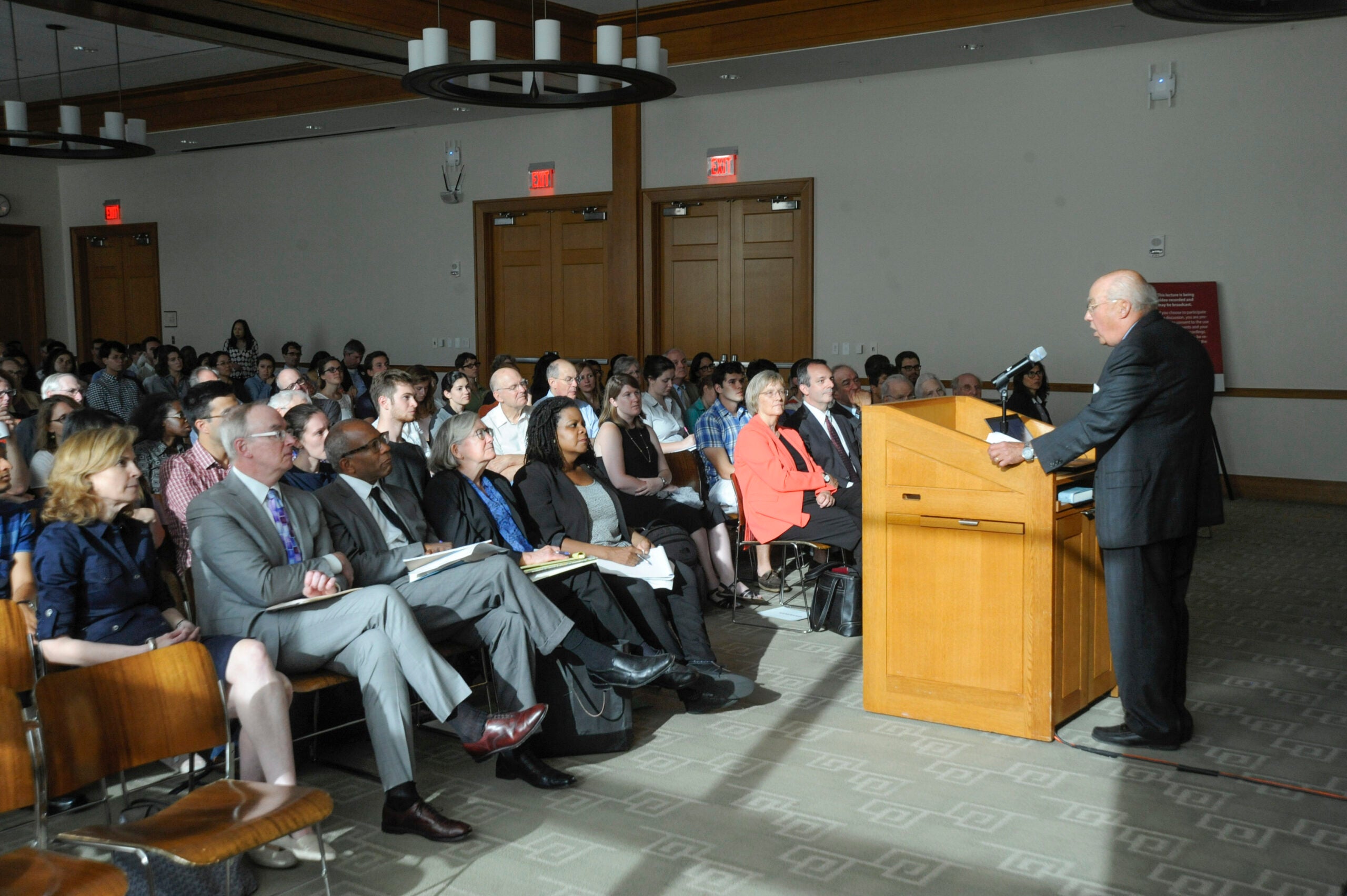People
Annette Gordon-Reed
-
America Was Built On Slavery (audio)
January 30, 2018
The Declaration of Independence doesn’t mince words when it states that “all men are created equal.” And yet the country’s other foundational document – The Constitution – protected the most unequal of institutions in slavery. Harvard Law Professor Annette Gordon-Reed joins us to talk about how America has struggled since its founding to reconcile these conflicting ideas. Her essay “America’s Original Sin” appears in Foreign Affairs magazine.
-
Female Trouble
January 22, 2018
A book review by Annette Gordon-Reed. The title of Hillary Clinton’s memoir of her unsuccessful campaign for the presidency, What Happened, has no question mark at the end, although many people around the world might reflexively add one. Clinton’s defeat surprised—stunned—many, including, as is clear from her recollections, Clinton herself. The majority of polls of the likely electorate indicated that she was headed for a nearly certain win, although her prolonged struggle for the Democratic nomination against a wild-haired, septuagenarian socialist from Vermont was a blinking sign of danger ahead. A significant number of voters were in no mood to play it safe, and the safe choice was what Clinton far too confidently offered in both the primaries and the general election.
-
The Fight Over Andrew Johnson’s Impeachment Was a Fight for the Future of the United States
January 3, 2018
An article by Annette Gordon-Reed. It promised to be a spectacle in a period that had seen its share of them. Three years after the end of a bloody civil war that had sundered the Union, and nearly three years after the assassination of Abraham Lincoln, the government of the United States had triggered the most serious process in the constitutional mechanism: the power of impeachment. On February 24, 1868, the House of Representatives voted along party lines, 126 to 47, to impeach President Andrew Johnson for having committed “high crimes and misdemeanors.” Days later, a House committee drew up nine articles of impeachment against the 17th president...The confrontation between Johnson and the men who wanted to remove him from office, the so-called Radical Republicans, was a fight over the future direction of the United States; a fight with implications that reverberate to this day.
-
America’s Original Sin
December 12, 2017
An article by Annette Gordon-Reed. The documents most closely associated with the creation of the United States—the Declaration of Independence and the Constitution—present a problem with which Americans have been contending from the country’s beginning: how to reconcile the values espoused in those texts with the United States’ original sin of slavery, the flaw that marred the country’s creation, warped its prospects, and eventually plunged it into civil war.
-
Invocation
November 29, 2017
On a clear, windy afternoon in early September at the opening of its bicentennial observance, Harvard Law School unveiled a memorial on campus.
-
A book review by Annette Gordon-Reed. It is no surprise that the election of the first black president of the United States would occasion much thinking, writing and talking about the subject of race in America...At the same time, how galling it was for the not insignificant number of white Americans who fervently believed that the US began as a country for white people, and should forever remain so. The president of the United States serves as a symbol of the nation; America’s face and voice to the world. All the reasons why many saw Obama’s election as evidence of the country’s endless capacity for adjustment and renewal, an occasion for pride, were for others evidence of America’s degradation, a source of intolerable shame and anger. Something had to be done. What was done, Ta-Nehisi Coates says in We Were Eight Years in Power, the book of essays that follows his bestselling and influential Between the World and Me, was to seek to erase with extreme prejudice the effects of the country having lived under a black president by electing the man Coates dubs in the book’s final essay “The First White President” (Trump’s “ideology is white supremacy, in all its truculent and sanctimonious power”).
-
Loretta Lynch and Annette Gordon-Reed: A conversation
November 2, 2017
As part of Harvard Law School's bicentennial summit, former Attorney General of the United States Loretta Lynch ’84 and Charles Warren Professor of American Legal History at Harvard Law School Annette Gordon-Reed ’84 looked back on their time together at Harvard Law School and discussed their subsequent careers.
-
Today is the opening day of the Supreme Court's fall term. Harvard law and history professor Annette Gordon-Reed is a Pulitzer Prize-winning author and this hour in a Chautauqua Lecture she explores the origins, and the evolution, of the nation's highest court. Alexander Hamilton called it "the least dangerous" branch of government. She titled her lecture, "The Supreme Court: Hamilton's vision vs. reality."
-
HLS celebrates connection to the arts
September 27, 2017
The Harvard Law School community gathered on Sept. 15 and 16 for a bicentennial festival celebrating HLS in the Arts featuring talks, art, films and performances by HLS faculty, students, staff and alumni.
-
Mike Pence erroneously credits Thomas Jefferson with small government quote
September 22, 2017
Vice President Mike Pence defended the diminished role of Washington in the latest health care bill introduced in the Senate by citing ardent anti-Federalist Thomas Jefferson..."Thomas Jefferson said, ‘Government that governs least governs best,’ " Pence said. "I mean, the question that people ought to ask is, who do you think will be more responsive to the healthcare needs in your community? Your governor and your state legislature, or a congressman and a president in a far off nation’s capital?" It must be nice to have Jefferson on your side — except Jefferson didn’t say it. "This comes up a lot," said Annette Gordon-Reed, a Harvard legal history professor who has written extensively about Jefferson.
-
Looking back at the founding of Harvard Law School
September 13, 2017
To officially open Harvard Law School’s Bicentennial celebration, a panel of Harvard Law School faculty members gathered on Sept. 5 to discuss the law school’s early history.
-
Harvard Law Unveils Monument to Donor’s Slaves
September 7, 2017
...Law dean John Manning said at a dedication ceremony Tuesday that the law school should be open about its origins and ties to the slave trade. “Our school was founded with wealth generated through the profoundly immoral institution of slavery,”...The text of the plaque was drafted by history and law professor Annette Gordon-Reed, who has written extensively on Thomas Jefferson’s slaves...Gordon-Reed noted during the dedication ceremony on Tuesday that the memorial does not include the names of the slaves whose toil helped fund the law school’s founding, because many of their names are unknown. “The words are designed to invoke all of their spirits and bring them into our minds and our memories with the hope that it will spur us to try to bring to the world what was not give to them: the law’s protection and regard, and justice.” But some slave names were recorded in documents, which were read aloud at the dedication by law professor Janet Halley.
-
“To Be True to Our Complicated History”
September 7, 2017
Midway through the list of names was when the crowd fell fully silent. Some 300 people, suddenly pinned in place, stood motionless in a half-circle around the outdoor podium where Janet Halley, Royall professor of law, was reading out the names of slaves who’d once belonged to Isaac Royall Jr., the eighteenth-century sugar-plantation owner whose fortune endowed Halley’s professorship and helped establish Harvard Law School...Inside Wasserstein Hall earlier in the evening, listeners had heard some of that complicated history from Warren visiting professor of American legal history Daniel Coquillette. The author of On the Battlefield of Merit: Harvard Law School, the First Century, he spoke not only about Royall, a brutal slave owner whose plantation in Antigua was notorious (he kept a 500-acre farm in Medford, too), but also about the school’s connections to the Fugitive Slave Act of 1793—which most faculty members at the time strongly supported, Coquillette sai...After Coquillette’s remarks—and a panel discussion that followed, with Halley, Warren professor of American legal history Annette Gordon-Reed, Klein professor of law Randall Kennedy, and Schipper professor of law Bruce Mann—audience members filed out into the courtyard to see the new memorial revealed.
-
At Law School, honor for the enslaved
September 7, 2017
As part of Harvard University’s efforts to recognize its early ties to slavery, officials yesterday unveiled a memorial to honor the enslaved people whose work helped found Harvard Law School...Recognizing the legacy of slavery at the Law School is important for coming to terms with the past and for reminding future lawyers of their duty to make the legal system wiser and fairer, said John F. Manning, the School’s Morgan and Helen Chu Dean and professor of law...[Annette] Gordon-Reed, who has written extensively about slavery and who drafted the words on the plaque, said the memorial doesn’t contain names because it’s impossible to know the identities of all the Africans the Royalls enslaved in Antigua and Medford, whose work built much of the wealth used to found the Law School...In a touching moment during the ceremony, Janet Halley, the Royall Professor of Law, who has spoken openly about the connections between her chair and slavery, read aloud the names of those enslaved who were found listed in the Royalls’ records.
-
Law School Unveils Slavery Monument, Reflects on History
September 6, 2017
Harvard Law School unveiled a memorial dedicated to slaves owned by the Royall family, whose donations helped endow the institution, at an event Tuesday evening. The plaque, which sits on a rock in the plaza between Langdell Hall and the Caspersen Student Center, reads, “In honor of the enslaved whose labor created wealth that made possible the founding of Harvard Law School. May we pursue the highest ideals of law and justice in their memory.” University President Drew G. Faust, newly appointed Dean of the Law School John F. Manning, and Law School professors Annette Gordon-Reed and Janet E. Halley each spoke at the dedication...Adrian D. Perkins, a member of the school’s student government, said seeing the monument gave him “profound happiness” as a student leader and African American student. He said the student government is planning a number of ways to address racial concerns on campus this year.
-
Harvard Law School unveils memorial honoring enslaved people who enabled its founding
September 5, 2017
On Sept. 5, at the opening of its Bicentennial observance, Harvard Law School unveiled a memorial to the enslaved people whose labor helped make possible the founding of the school.
-
An essay by Annette Gordon-Reed. Sally Hemings has been described as “an enigma,” the enslaved woman who first came to public notice at the turn of the 19th century when James Callender, an enemy of the newly elected President Thomas Jefferson, wrote with racist virulence of “SALLY,” who lived at Monticello and had borne children by Jefferson. Hemings came back into the news earlier this year, after the Thomas Jefferson Foundation announced plans to restore a space where Hemings likely resided, for a time, at Monticello.
-
An interview with Annette Gordon-Reed. President Trump has asked if the U.S. should take down statues of slave-owning Founding Fathers. Scott Simon speaks with historian Annette Gordon-Reed about their differences from Confederate leaders.
-
Charlottesville: Why Jefferson Matters
August 22, 2017
An op-ed by Annette Gordon-Reed. I came to Charlottesville, Virginia for the first time in 1995. After four months of feverish work, I had completed a manuscript about what I thought was the biased and, therefore, unreliable way in which historians had handled the question of whether Thomas Jefferson had children with Sally Hemings, an enslaved woman at his plantation, Monticello...I mention these things to say that the national tragedy that unfolded in Charlottesville last week struck at every aspect of my being—a black person, a friend, an American, and a scholar who has devoted many years to studying Jefferson, slavery at Monticello, and, by extension, Charlottesville.
-
Thomas Jefferson’s Bible Teaching
July 5, 2017
An op-ed by Annette Gordon-Reed and Peter S. Onuf. It was an article of Thomas Jefferson’s faith that no government should interfere in anyone’s private religious beliefs. A passionate student of history, Jefferson knew that religious struggles through the ages had caused “rivers of blood” to flow all over the world. The blood is still flowing. News of sectarian violence reaches us daily from across the globe, bringing us unimaginably horrific and mind-numbing images. One of Jefferson’s most fervent hopes was that Americans would be spared this carnage, and he did his best to set us on that path. It’s worth pausing, this Fourth of July, to ponder this facet of Jefferson’s deep wisdom, and how well we’ve lived up to it.
-
Last May's removal of four Confederate monuments in New Orleans touched off praise and criticism...This week at the Aspen Ideas Festival, New Orleans Mayor Mitch Landrieu, one of the primary forces behind the removal of the public monuments of Robert E. Lee, Jefferson Davis and Gen. Beauregard, along with the one opposing Reconstruction, called their displacements "very difficult and very painful." But he also said he believed it was the right thing to do, even though he might have lost some friends and allies in the process...Added another panelist, Annette Gordon-Reed, a professor at Harvard Law School: "We can distinguish between people who wanted to build the United States of America and people who wanted to destroy it. It's possible to recognize people's contributions at the same time as recognizing their flaws."




